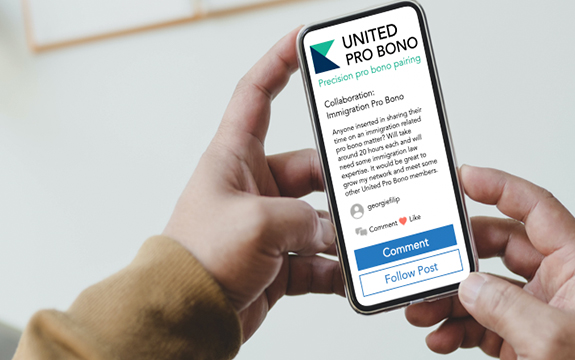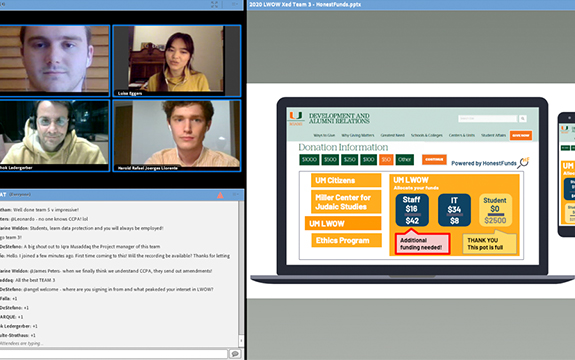Swinburne law students create innovative legal tech solutions on global scale

In Summary
- Swinburne law students took part in the online global Law Without Walls (LWOW) program
- The students created innovative technological solutions to real-life legal industry problems
- Swinburne’s Legal Technology and Innovation Unit explores how technology is changing the legal industry
Swinburne Law School students have created legal technology solutions to real-life industry problems as part of the global ‘Law Without Walls’ program.
Bachelor of Law students, Georgie Filip and Alex Clark, represented Swinburne in the four-month program, which attracts applications from law schools around the world.
Law Without Walls (LWOW) builds the skills and knowledge of aspiring lawyers about the practical application of innovation and technology in the law.
As part of the program, students from more than 35 law schools around the world work together to co-create business cases and solutions, including a prototype, to law-related social justice problems put forward by a law firm or legal company. At the end of the four months, they pitch their solution to a panel of judges and the sponsor company.
Georgie says she chose to enrol to expand her understanding of the law and legal technology on a global scale.
“I was most interested in connecting with law students from other countries. From the program I got a greater understanding of law students internationally, the problems we have in common, as well as the differences in our experiences. It was surprising to me how different each country’s legal system and law schools operated.”
Reducing barriers to pro bono work
Georgie’s team were tasked with creating a solution to the barriers small firms face in taking on pro bono work, such as time constraints, perceived lack of expertise, and having less resources than larger firms.
They created ‘United Pro Bono’ – a platform for small firms to join that sources pro bono matters, provides time estimates for pro bono work, and gives access to a global network they can consult in the future to better prepare their lawyers.
“From this experience I learnt that although pro bono industry has a lot to offer, it is a largely underutilised asset that many firms could use to expand their paying client opportunities and networks,” says Georgie.
Transparency and tangible impact
Alex’s team, comprising members from Spain, Switzerland, Germany and Pakistan, worked on how law-related non-profits can track and share their use of donated funds to show the tangible impact donors are having. His team developed Honest Funds – a plug-in for the websites of non-profits that allows donors to have a say on the allocation of their funds.

Alex and his team pitched their idea to a panel of judges and he says the program helped equip him with the skills needed for online learning due to COVID-19.
Theory into practice
During the competition, both students drew upon what they had learnt in Swinburne’s Legal Technology and Innovation unit. This unit gives students insight into the relationship between law and technology, and the new technologies changing the nature of the legal industry.
“I was interested in further pursuing legal technologies after completing this unit and the virtual program helped to take a different approach in analysing the audience and potential market for an innovative solution,” says Alex.
The experience helped both Georgie and Alex gain a deeper understanding of the global legal marketplace and how innovation is impacting the work, expectations, and careers of legal professionals. Georgie says these kinds of experiences also help students gain valuable skills, industry connections and a “foot in the door”.
After pitching their ideas to a panel of judges and industry, Alex and Georgie have a final pitch to students considering learning more about legal technology and innovation. They say if you are looking to learn new skills to complement what you’re learning at university, “these types of experiences help you to succeed.”

